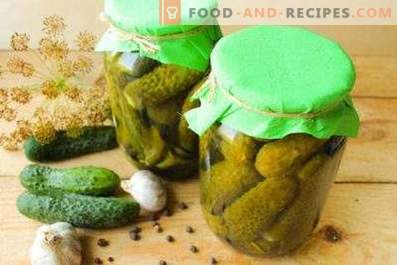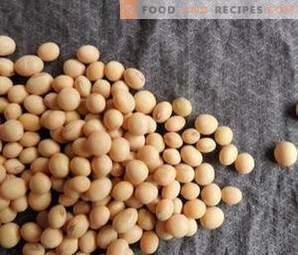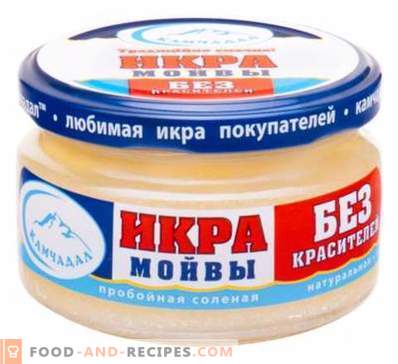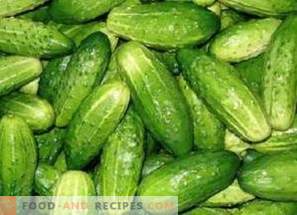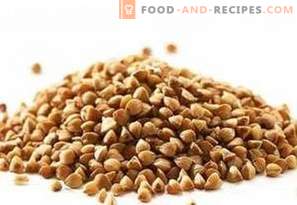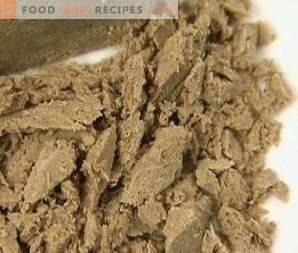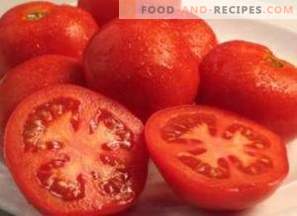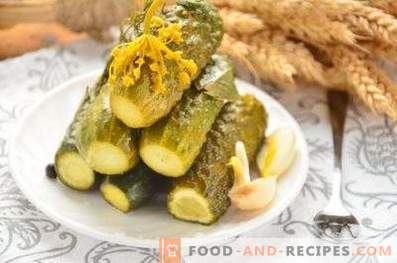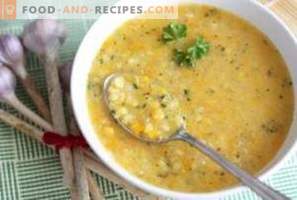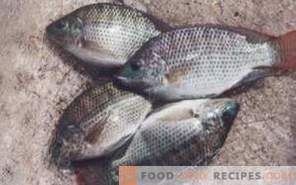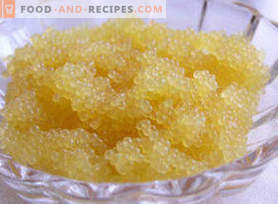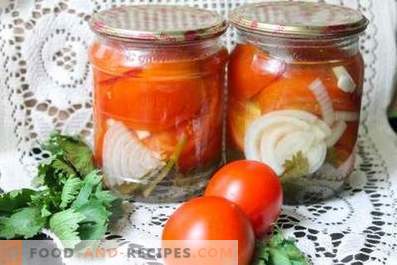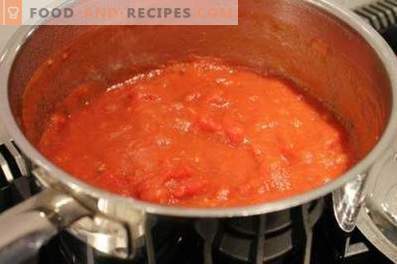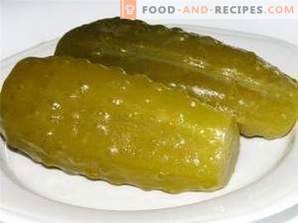
Pickling cucumbers is a traditional way of harvesting these vegetables. And the best way to keep a maximum of nutrients and vitamins in cucumbers.
Composition and caloric content
Salted cucumbers are completely absorbed by the body, providing it with extremely beneficial substances. They contain more than 95% water (brine) and a lot of dietary fiber (fiber). Organic acids, mono- and disaccharides, ash and starch are also included in the composition of cucumbers. Unsaturated fatty acids make up just 0.001 grams. on 100 gr. finished product.
Crispy cucumbers - a delicious storehouse of vitamins and minerals. They contain vitamins of group B, A and PP. There is a lot of vitamin C in pickled cucumbers (especially barrels), and in addition, “rare” vitamins H and T were found in them. The mineral substances include 21 (!) Elements, including sulfur, iodine, sodium, chlorine, magnesium, phosphorus, copper, iron, cobalt, nickel and rubidium.
Salted cucumbers are an excellent diet food. Their caloric content is very low - an average of 11 Kcal.
Useful? And how!
The most important component of pickles is lactic acid. Under the influence of salt and water in fresh cucumbers, the fermentation process begins, as a result of which lactic acid is formed. The microorganisms in it have the ability to inhibit the development of intestinal bacteria. It is thanks to this property that eating pickled cucumbers helps to effectively fight intestinal microbes. Lactic acid reduces the level of fat in the blood, therefore, helps reduce cholesterol levels. Regular consumption of pickled cucumbers in a most favorable way affects the metabolism - doctors recommend including such a product in the diet of people trying to lose weight.
Cucumbers will be useful for those who suffer from constipation, because salty fiber provides the normal functioning of the gastrointestinal tract and has a mild laxative effect. Fresh cucumber pickle has valuable qualities. It improves blood circulation, reduces pressure and increases the elasticity of blood vessels. Eat pickles is also desirable for people with poor appetite.
The high content of vitamin C allows the use of pickles as an effective medicine for scurvy, some oral diseases and vitamin deficiency. Vitamin B has a beneficial effect on the nervous system of the body and relieves muscle tension. Having eaten 2-3 small pickled cucumbers, you can improve your psycho-emotional state, and a dish of pickled cucumbers at dinner contributes to complete relaxation and rest.
Harmful? Unfortunately ...
As with any food, pickled cucumbers can bring health not only benefit, but also harm. A high content of lactic acid has a bad effect on the condition of a sick stomach, therefore, people with such discomfort salted cucumbers are better not to eat. They are strictly prohibited to persons with kidney problems: urolithiasis, nephritis, pyelonephritis, chronic renal failure, and some other diseases. Doctors do not advise people with hepatitis, cholecystitis and pancreatic diseases to eat such a pickle. The use of pickled cucumbers should be minimized even with atherosclerosis. It should be borne in mind that by eating several cucumbers at once, you can provoke a sharp drop in pressure. To limit their content in the diet is better for those who suffer from heart disease.
You can not eat a lot of pickled cucumbers for young children, as this can lead to impaired renal function and liver. Pregnant women pickles are allowed, but also in moderation.
Healthy food for the most demanding!
The content of useful substances in pickled cucumbers is directly influenced by the way they are salted. The most “healing” are vegetables, harvested in oak barrels. It is very desirable to put currant, oak or cherry leaves, dill, horseradish leaves (roots), garlic in cucumbers. This will not only significantly improve the taste of the finished product, but also make it much healthier.
Adding sugar to a pickle dramatically reduces the content of vitamins and minerals in cucumbers and increases their caloric content.
